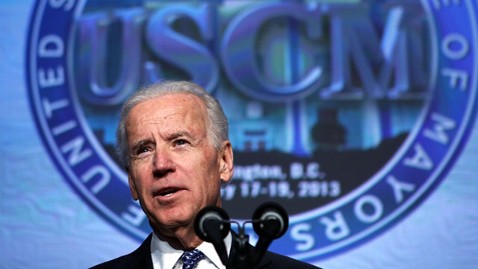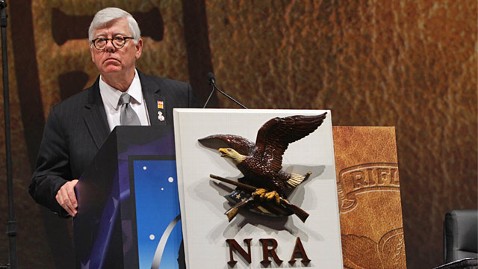BAMAKO/DUBAI (Reuters) - France pledged on Tuesday to keep troops in Mali until stability returned to the West African country, raising the specter of a long campaign against al Qaeda-linked rebels who held their ground despite a fifth day of air strikes.
Paris has poured hundreds of soldiers into Mali and carried out 50 bombing raids since Friday in the Islamist-controlled northern half of the country, which Western and regional states fear could become a base for terrorist attacks in Africa and Europe.
Defense Minister Jean-Yves Le Drian said that, despite French air support, Malian forces had not been able to dislodge Islamist fighters from the central Malian towns of Konna or Diabaly, just 350 km (220 miles) northeast of Bamako.
A column of French armored vehicles rolled northward from the dusty riverside capital of Bamako towards rebel lines on Tuesday, the first major northward deployment of ground troops. A military official declined to comment on their objective.
Thousands of African soldiers are due to take over the offensive. Regional armies are scrambling to accelerate an operation which was initially not expected until September and has been brought forward by France's surprise bombing campaign aimed at stopping a rebel advance on a strategic town last week.
President Francois Hollande, on a visit to the United Arab Emirates during which he sought Gulf states' financial backing for the African-led mission, suggested France would retain a major role in its former colony for months to come.
"We have one goal. To ensure that when we leave, when we end our intervention, Mali is safe, has legitimate authorities, an electoral process and there are no more terrorists threatening its territory," Hollande told a news conference.
Paris has said it plans to deploy 2,500 soldiers to bolster the Malian army and work with the intervention force provided by West African states.
AFRICAN TROOPS
West African Defense chiefs met in Bamako on Tuesday to approve plans for the swift deployment of 3,300 regional troops, foreseen in a United Nations-backed intervention plan. After failing to reach a final agreement, they adjourned their talks until Wednesday.
Nigeria pledged to deploy soldiers within 24 hours, and Belgium said it was sending transport planes and helicopters to help, but West Africa's armies need time to become operational.
Mali's north, a vast and inhospitable area of desert and rugged mountains the size of Texas, was seized last year by an Islamist alliance combining al Qaeda's north African wing AQIM with splinter group MUJWA and the home-grown Ansar Dine rebels.
Any delay in following up on the French air bombardments of Islamist bases and fuel depots with a ground offensive could allow the insurgents to slip away into the desert and mountains, regroup and counter-attack.
The rebels, who French officials say are mobile and well armed, have shown they can hit back, dislodging government forces from Diabaly on Monday.
Residents said the town was still under Islamist control on Tuesday despite a number of air strikes that shook houses.
An eye witness near Segou, to the south, told Reuters he had seen 20 French Special Forces soldiers driving toward Diabaly.
In Konna, whose seizure on Thursday sparked French involvement, residents said Islamist fighters were camped just outside town. Army troops had also withdrawn after entering the town on Saturday.
Malians have largely welcomed the French intervention, having seen their army suffer a series of defeats by the rebels.
"With the arrival of the French, we have started to see the situation on the front evolve in our favor," said Aba Sanare, a resident of Bamako.
QUESTIONS OVER READINESS
Aboudou Toure Cheaka, a senior regional official in Bamako, said the West African troops would be on the ground in a week.
The original timetable for the 3,300-strong U.N.-sanctioned African force - to be backed by western logistics, money and intelligence services - did not initially foresee full deployment before September due to logistical constraints.
Senegal, Burkina Faso, Niger, Nigeria and Guinea have all offered troops. Col. Mohammed Yerima, spokesman for Nigeria's Defense ministry, said the first 190 soldiers would be dispatched within 24 hours.
But Nigeria, which is due to lead the mission, has already cautioned that even if some troops arrive in Mali soon, their training and equipping will take more time.
Sub-Saharan Africa's top oil producer, which already has peacekeepers in Sudan's Darfur and is fighting a bloody and difficult insurgency at home against Islamist sect Boko Haram, could struggle to deliver on its troop commitment of 900 men.
One senior government adviser in Nigeria said the Mali deployment was stretching the country's military.
"The whole thing's a mess. We don't have any troops with experience of those extreme conditions, even of how to keep all that sand from ruining your equipment. And we're facing battle-hardened guys who live in those dunes," said the adviser, who asked not to be named.
FRENCH LINING UP SUPPORT
France, which has repeatedly said it has abandoned its role as policeman of its former African colonies, said on Monday that the U.S., Canada, Denmark and Germany had also offered logistical support.
Fabius has said Gulf Arab states would help the Mali campaign, while Belgium said on Tuesday it would send two C130 transport planes and two medical helicopters following a request from Paris.
A meeting of donors for the operation was expected to be held in Addis Ababa at the end of January.
Security experts have warned that the multinational intervention in Mali, couched in terms of a campaign by governments against "terrorism", could provoke a jihadist backlash against France and the West, and African allies.
U.S. officials have warned of links between AQIM, Boko Haram in Nigeria and al Shabaab Islamic militants fighting in Somalia.
Al Shabaab, which foiled a French effort at the weekend to rescue a French secret agent it was holding hostage, urged Muslims around the world to rise up against what it called "Christian" attacks against Islam.
"Our brothers in Mali, show patience and tolerance and you will win. War planes never liberate a land," Sheikh Ali Mohamud Rage, al Shabaab's spokesman, said on a rebel-run website.
U.S. officials said Washington was sharing information with French forces in Mali and considering providing logistics, surveillance and airlift capability.
"We have made a commitment that al Qaeda is not going to find any place to hide," U.S. Defense Secretary Leon Panetta told reporters as he began a visit to Europe. Panetta later said the U.S. had no plans to send troops to Mali.
One U.S. military source said the haphazard nature of French involvement reminded him of the U.S. entry into Afghanistan.
"I don't know what the French endgame is for this," the source said. "Air strikes are fine, but pretty soon you run out of easy targets. Then what do you do? What do you do when they head up into the mountains?"
(Additional reporting by Elizabeth Pineau and Raissa Kasolowsky in Abu Dhabi, Felix Onuah in Abuja and Tim Cocks in Lagos, Abdi Sheikh in Mogadishu, Michelle Nichols and Louis Charbonneau at the United Nations,; Richard Valdmanis in Dakar, Joe Bavier in Abidjan, Jan Vermeylen in Brussels; Writing by Pascal Fletcher, Daniel Flynn and David Lewis; editing by Richard Valdmanis, Giles Elgood and Will Waterman)











